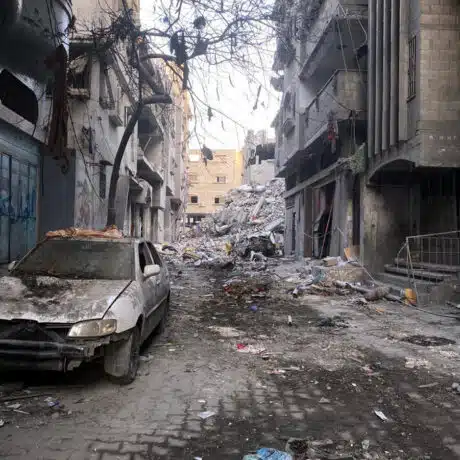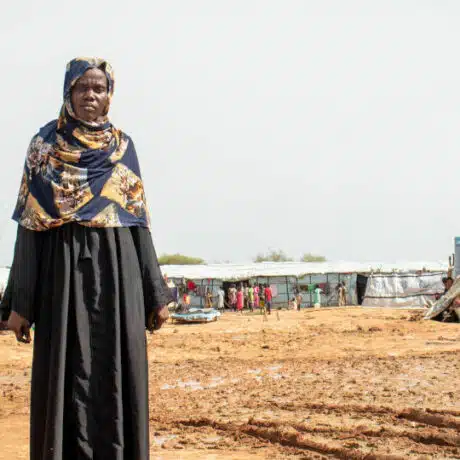News and Stories - Emergencies - 16 November 2020
Supporting communities through COVID-19
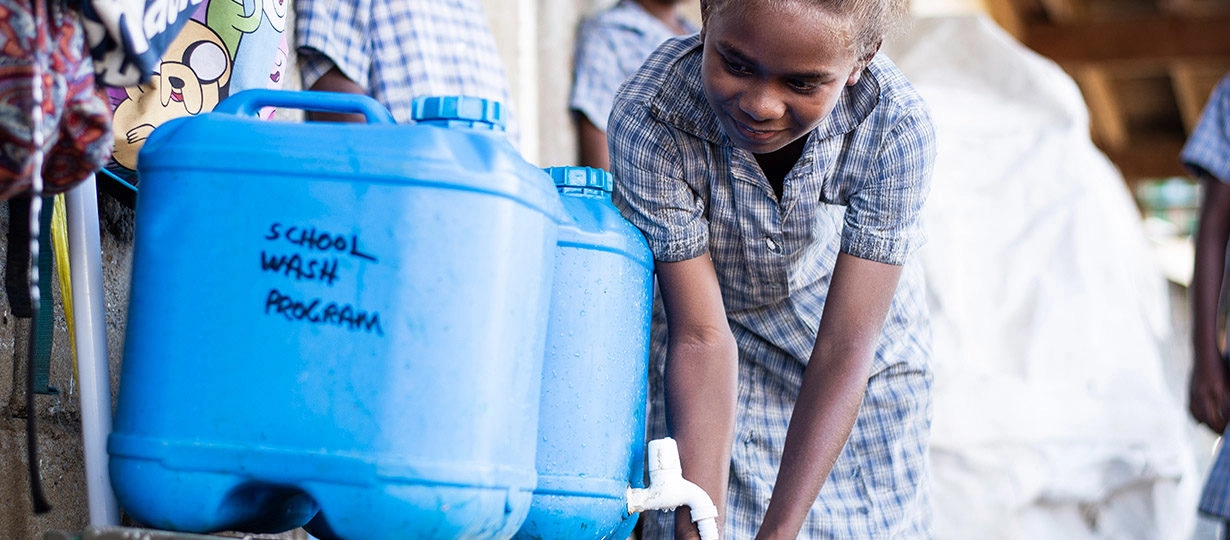
When Plan International declared COVID-19 a red level emergency in April, there was an urgent need to pivot all of our programs to align with our global humanitarian response.
Here in Australia, despite grappling with the pandemic ourselves, our incredible community of supporters mobilised when we launched an appeal in March, and thanks to your generosity, we raised an incredible $364,000.
While the impact of this pandemic has been global, for children and families living in vulnerable communities around the world – be it refugee camps, remote regions of Asia and the Pacific or food-insecure countries in southern Africa – the effects of COVID-19 has the potential to be catastrophic.
Having responded to the Ebola outbreak in West Africa in 2014, Plan International was expertly placed to respond to a public health emergency like COVID-19, and such experiences were drawn on to develop our response to pandemic.
Your donations have been vital in supporting Plan International’s emergency response in these regions, and through a coordinated multi-country approach, we’ve been working with communities, governments and partners to:
- Tackle the spread of the virus through disseminating public health information
- Promote best hygiene practices and increasing Water Sanitation and Hygiene (WASH) programming
- Assist communities to install hand-washing facilities
- Ramp up our food and nutrition programs
- Support and protect those directly affected in refugee and displaced persons camps in Bangladesh and Southern and Eastern Africa
- Step up child protection measures to ensure children and their families are supported and prepared to deal with the social and economic impacts
Your support during this time has allowed Plan International to pivot our programs, and respond to the COVID-19 crisis as it unfolded.
In Uganda, young women in our Safer Cities 4 Girls program have been developing new ways to raise awareness on the increased risk of gender-based violence (GBV) in lockdown. They’re also distributing sanitary products and hygiene kits, and helping survivors of GBV access the medical and psychosocial support they need.
As part of our COVID-19 response in Bangladesh, Plan International has been providing cash transfers to families of sponsored children in Rangpur, Barisal and Dhaka, along with informative leaflets about COVID-19 and how to prevent its spread.
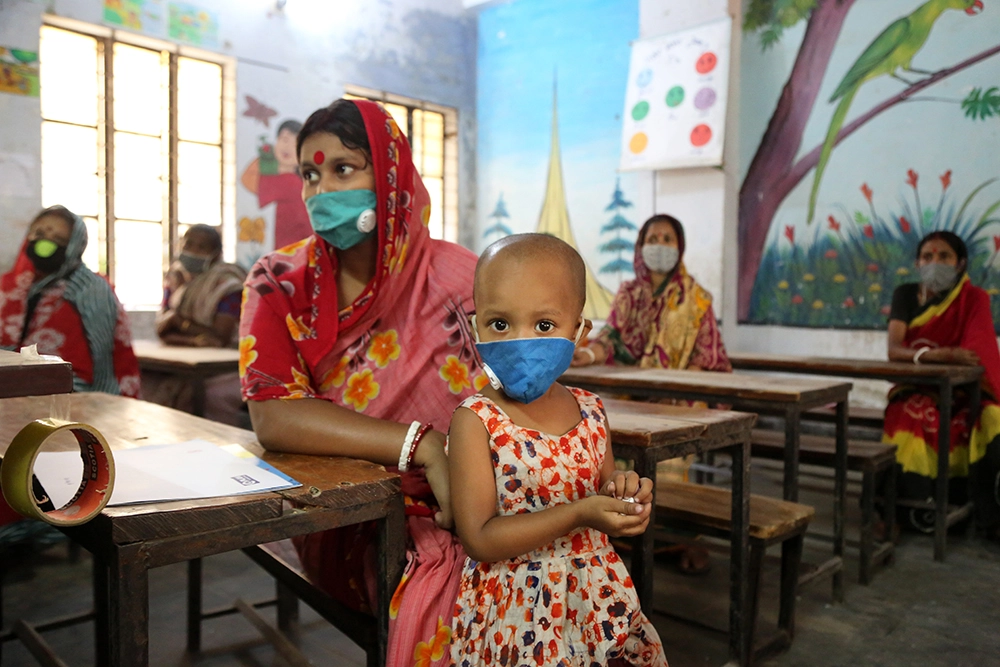
Through our Urban Resilience programs in Myanmar, Philippines and Indonesia we’ve been distributing hand sanitiser, gloves and face masks to health care staff, setting up hand-washing stations in public spaces, and providing online training to young people on COVID-19 prevention.
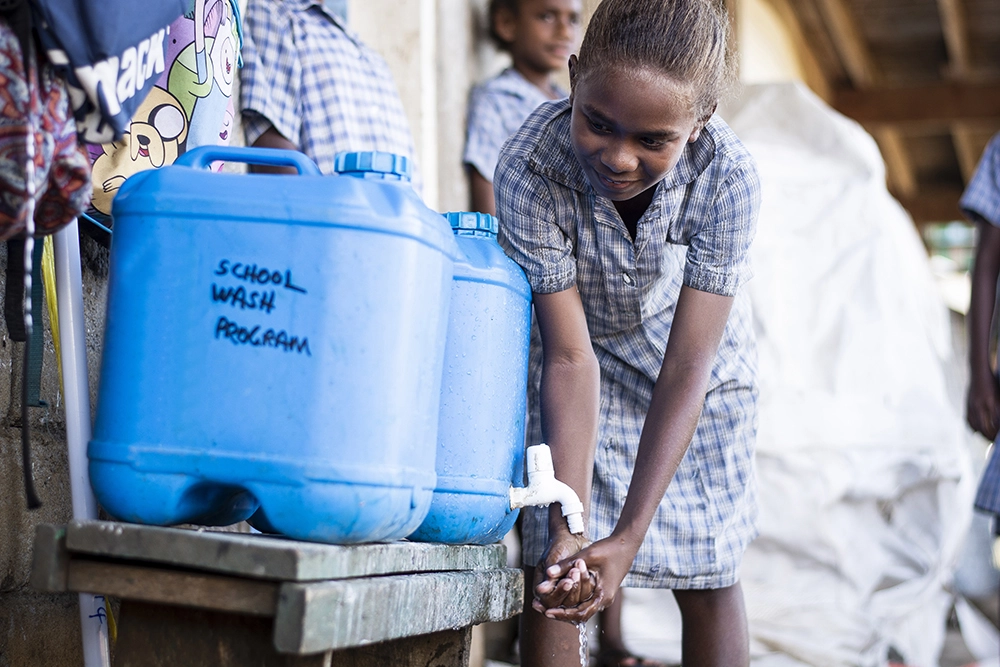
In the Solomon Islands, together with our local partner Live & Learn Environmental Education, we’ve implemented our New Times, New Targets Water, Sanitation and Hygiene (WASH) project across 22 schools in West Guadalcanal Province and in 73 villages in Isabel province.
In normal circumstances, the project helps schools review their existing WASH status and develop action plans for the improvement of WASH facilities and activities.
In response to the pandemic, we developed and disseminated COVID-19 prevention and information to schools and the surrounding communities along with handwashing facilities to encourage good hygiene behaviours.
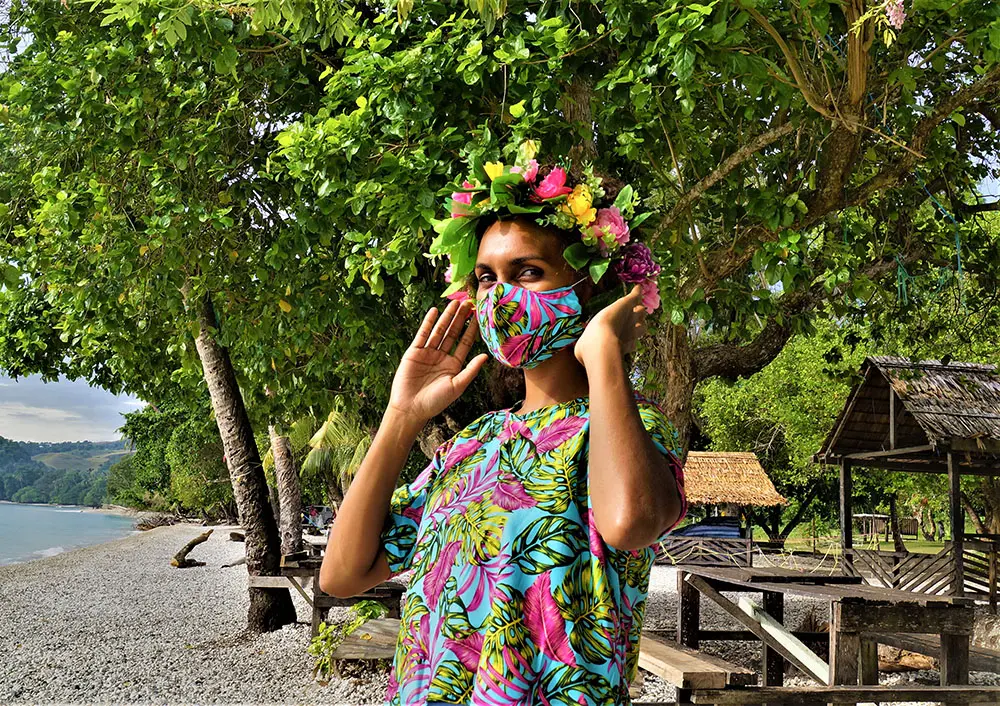
Plan International Australia’s Water for Women project supported Solomon Islands social enterprise and project partner, MJ Enterprise, to add reusable face masks to its sanitary pad manufacturing business. According to MJ Enterprise founder, Mary Ramosaea, “the facemask business is flourishing”, providing work for the female staff-base amid the COVID-19 pandemic while responding to national shortages in personal protective equipment (PPE).
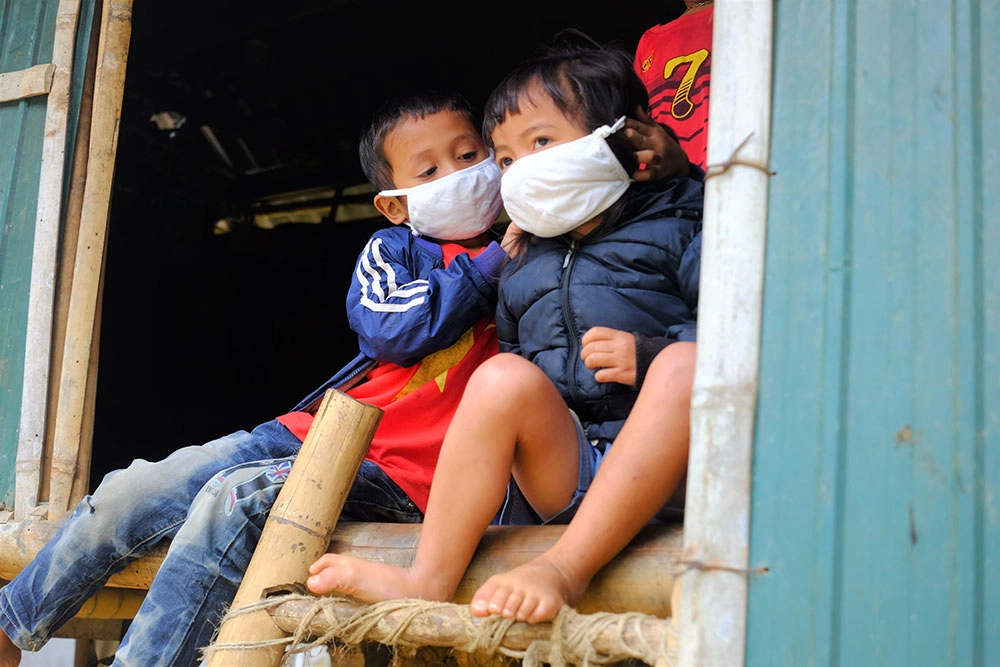
COVID-19 has set us all back in countless ways. But for girls in crisis across the world, it’s unravelling decades of progress. However your support is helping us to stop the setback.
Thanks to you, we’re working to get girls back into school and to support their education through distance learning. We’re providing essential health services to girls, and helping the most vulnerable to access basic hygiene. And we’re working to protect children from violence and prevent child marriage.
You are the reason we have been able to continue to deliver this important work, and we thank you for always standing with us, especially during these challenging times.
The New Times, New Targets Project is an Australian aid initiative implemented by Plan International Australia in partnership with Live & Learn Environmental Education on behalf of the Australian Government.
Child Sponsorship during COVID-19
Although the restrictions necessary to prevent the spread of COVID-19 have meant we’ve been unable to deliver our usual sponsorship programs, the funds from these programs are being redirected to our COVID-19 response, ensuring your sponsored child and their community continues to be supported through this time. In the same way that our sponsorship model usually functions, rather than financial support going directly to a sponsored child, your contributions are combined with those of other caring sponsors and institutional donors, providing a steady stream of funding to all the countries and communities where Plan International works.


